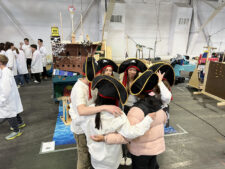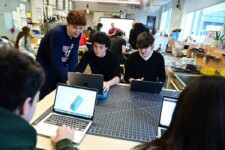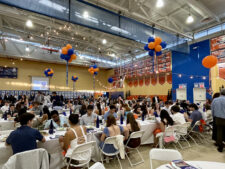As another academic year comes to a close, Fieldston Upper students have plenty of discoveries to showcase. Both in and out of the classroom, an Ethical Culture Fieldston School education not only serves students’ growth as citizens but also strengthens their skills as scholars.
Science Expo: Hands-On Research at ECFS
In science, 9th–11th Graders taking laboratory courses work in groups of two to three to design, execute, and analyze an experiment of their own creation. They demonstrate this knowledge at the annual Science Expo, ECFS’s own conference-style research presentation. Students hone their skills as science communicators as they explain their research findings to a diverse audience of ECFS community members.
The Expo experiments are a key example of experiential, student-centered learning. Developing their own experiments allows students to develop a hands-on approach to their studies and not only see, hear, and think but also make, do, and feel. Whether it was applying statistical models to the MLB season, quantifying static friction in interleaved books, or studying temperature’s effects on butterfly maturity, this year’s group of students incorporated their own passions and interests into a detailed scientific study.

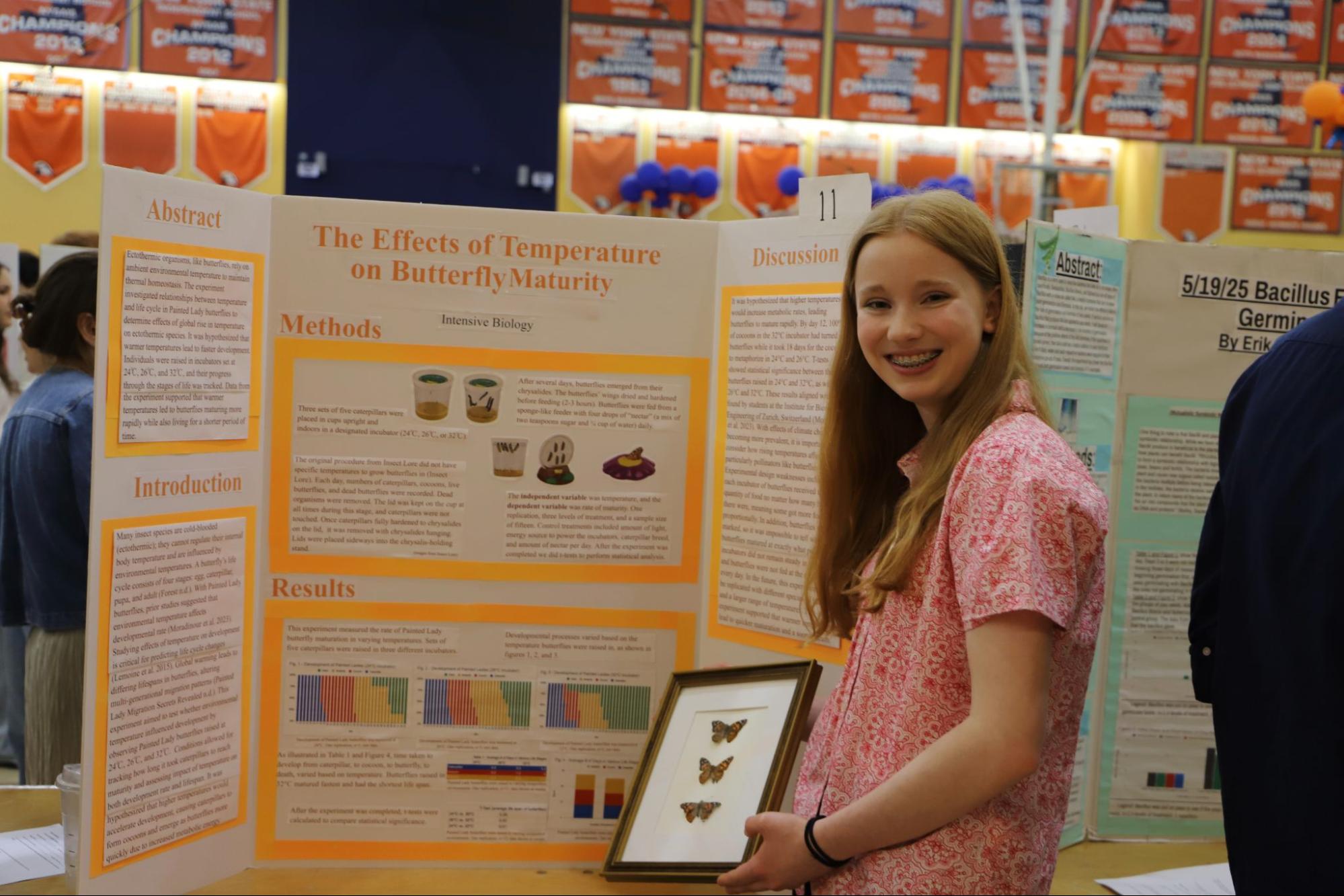
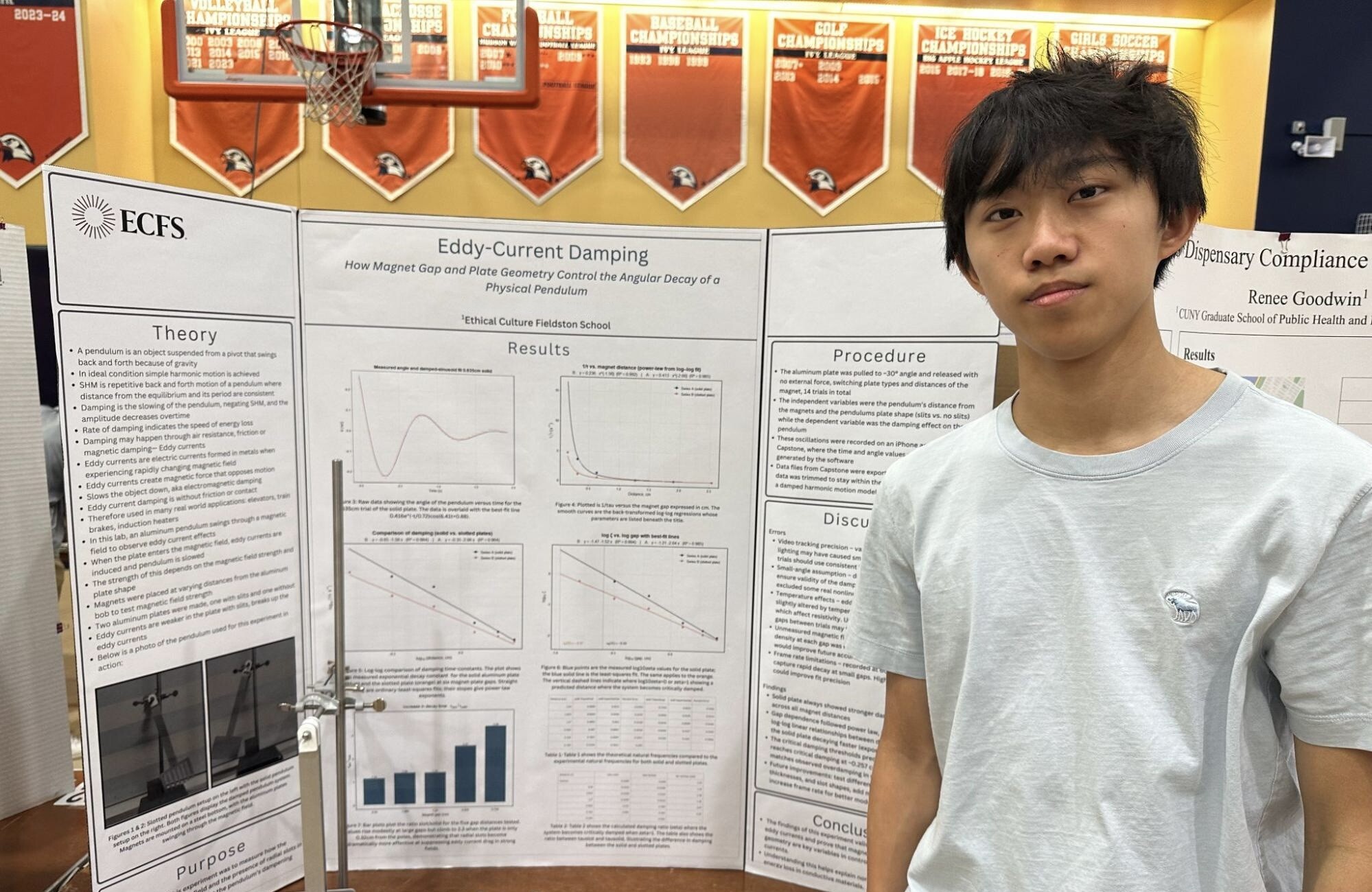
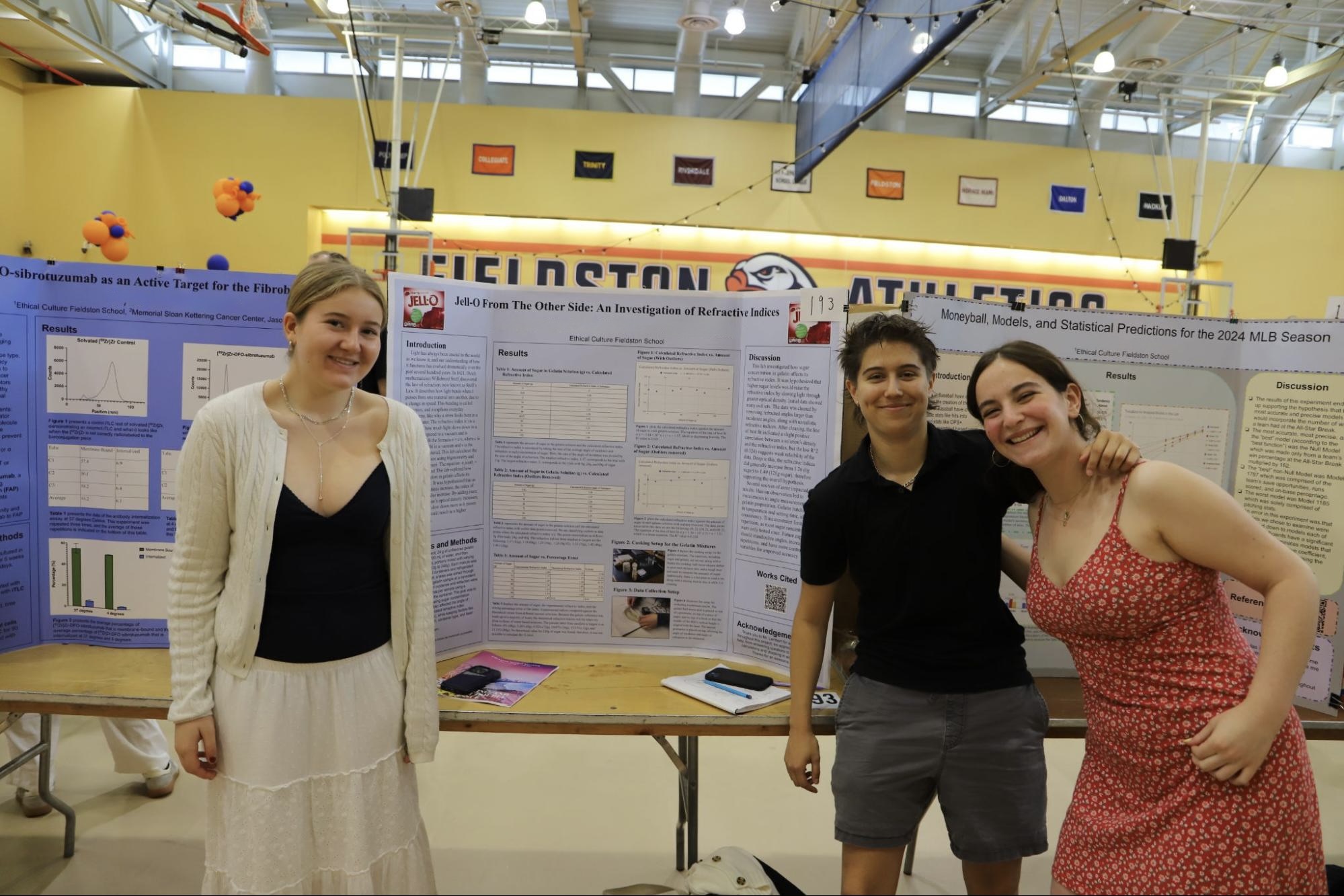
“Being able to participate in the Expo throughout your science classes shows you a variety of different fields to work in and can help you figure out what specific science that you’re interested in,” says Ian C. ’26. “I already had an interest in STEM, and doing the Science Expo in these different subjects helped me decide what I wanted to pursue specifically in the science research program.”
Community Service: Ethical Learning in Action
Service learning is a core aspect of ECFS’s ethical learning, allowing students to combine service efforts in both the classroom and the outside community and recognize the responsibility each person has to the whole. This year, in response to the devastation and displacement caused by the California wildfires and a nearby Bronx fire, the Community Service Advisory Board class (CSAB) organized a drive to meet the needs of both communities.
“Half of the class worked to address the needs of folks who were going to the Los Angeles food bank,” says Director of Public Partnership Shelley Topping-Omodunbi. “After the LA fires, they worked with the LA Food Bank to develop a list of needed items. They created an Amazon wishlist and put out a call to the community for those items. The other half of the class collaborated with local elected officials to support victims of a major Bronx fire that had occurred around the same time as the LA fire. They were able to draw connections in terms of impact, but also benefit from learning about a bicultural service project.”
Students also identified leadership opportunities within their community outreach. Cameron B. ’26 led the Friendly Fridge club, which helps provide resources to a local community fridge. Club members created a survey that was then translated into different languages and used to determine the needs of neighbors using the fridge. They also began work on a ‘zine highlighting local and seasonal produce and how to best use these resources.
“It’s so important for young people to get involved because, especially when you’re forming who you are, the power of being involved in service helps you incorporate ideas and concepts larger than yourself,” Topping-Omodunbi says. “Having that grounding experience of serving in a community outside of yourself is a centering force that is important for all young people to experience.”
City Semester
Students participating in the City Semester program explore both the local South Bronx neighborhood and the greater New York City community through immersive service learning and rigorous public policy education. Encouraged to create their own learning experiences and address urban policy challenges affecting sustainability and equity, students showcase the semester’s findings through recipes, policy papers, podcasts, and more in an exhibition.
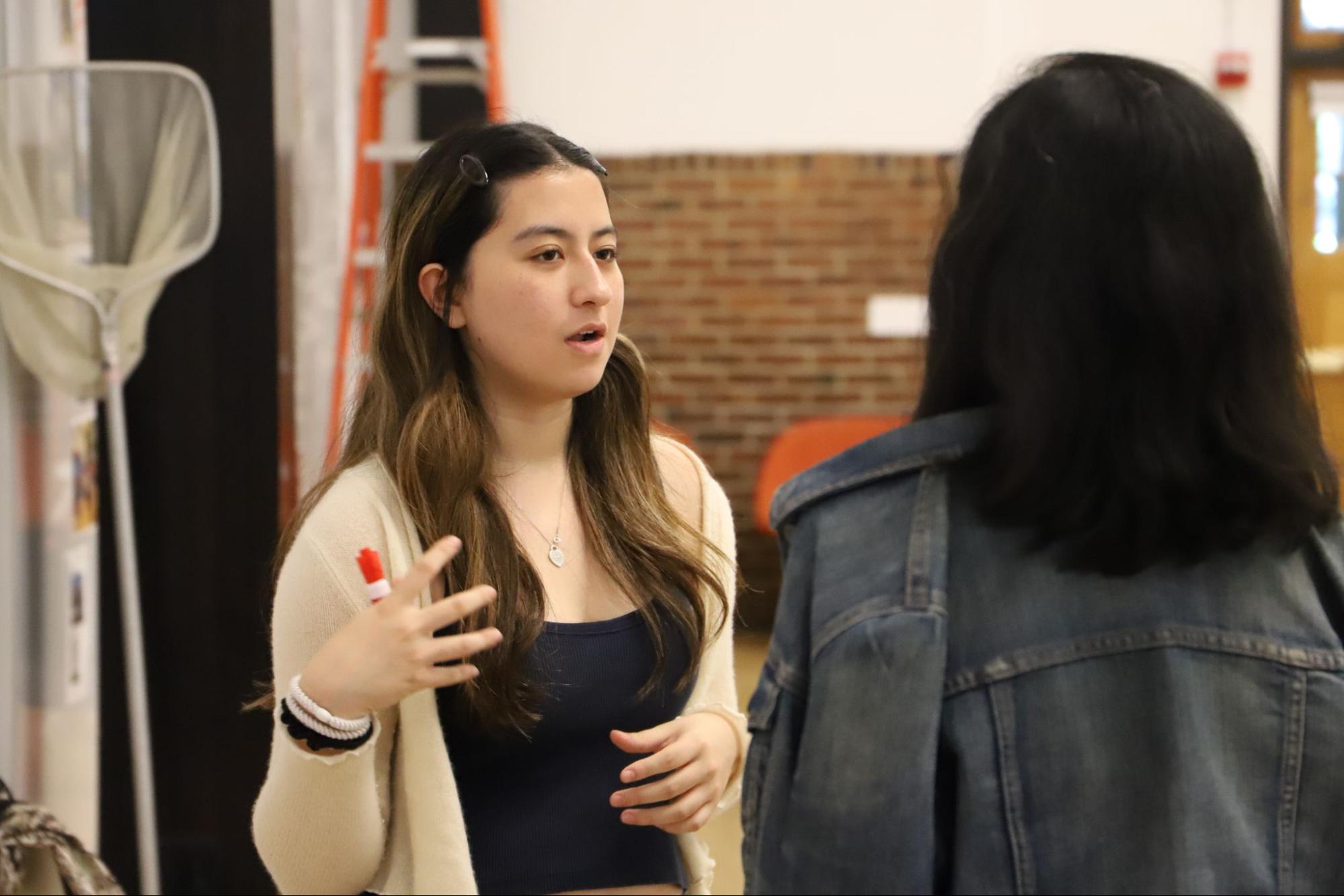


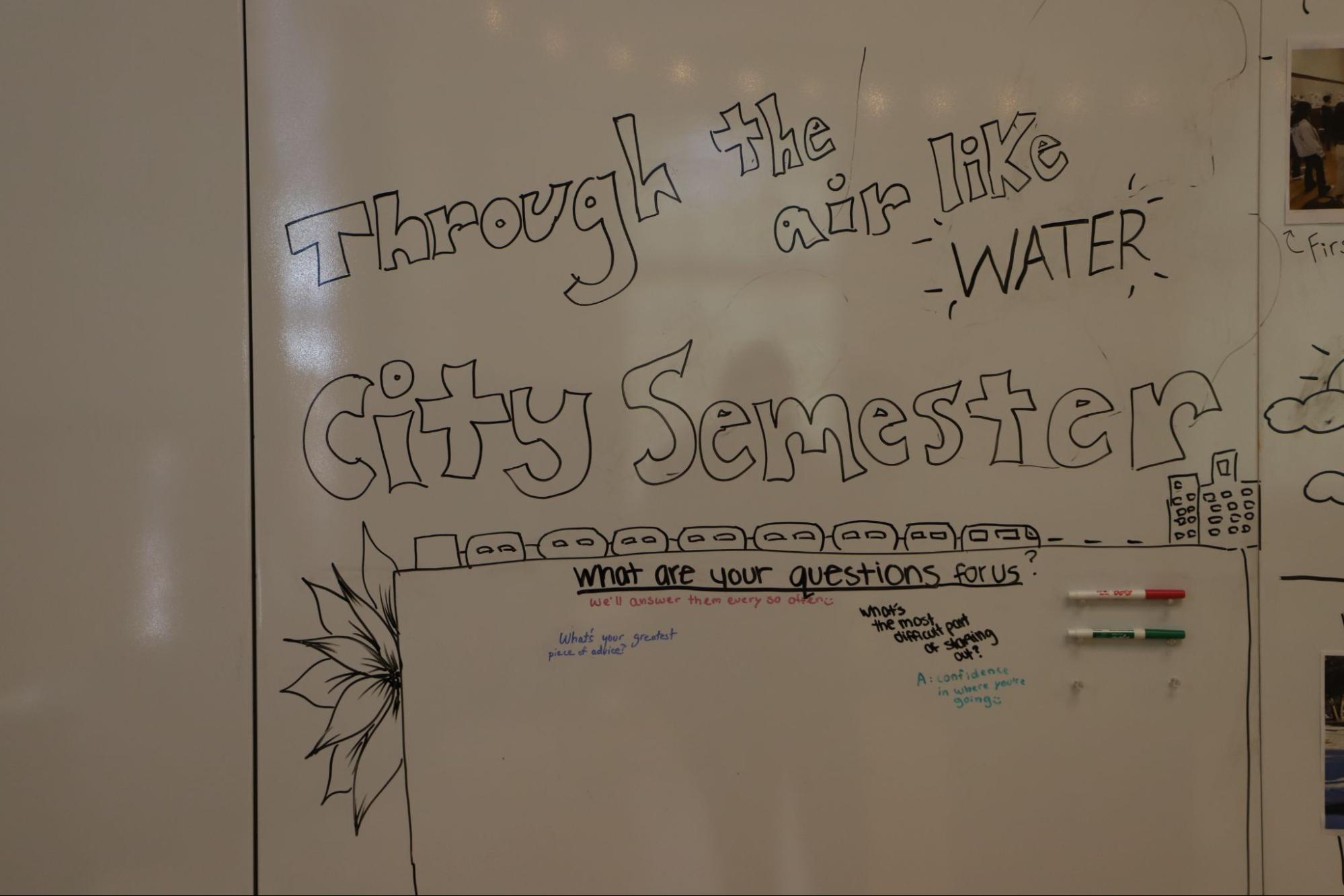
“In City Semester, I felt like I was still connected to school, but I was learning from the city and not just a teacher,” Iris S. ’26 shares. “That was really beneficial for interdisciplinary learning and seeing how the world actually works.”
The program’s small group dynamic and concentrated focus on New York City and its residents also molds students’ confidence and interpersonal skills.
“I’ve learned so many things, whether it was how to collaborate with other people for group projects or if it’s just thinking about people’s perspectives and the different stakeholders in every single policy throughout the city,” Zena I. ’26 says.
With responsive assignments inspiring students to embrace interdependent learning, ECFS shapes minds to rethink the way students approach academics beyond traditional classroom walls.

